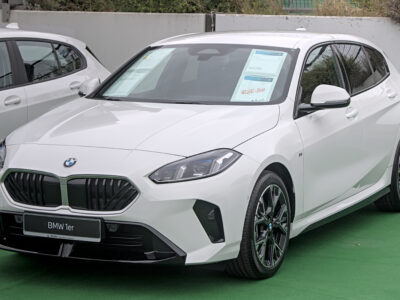
Volkswagen T-Cross MPG: The Complete Real-World Fuel Economy Guide

- Understanding the Volkswagen T-Cross MPG in the Real World
- What Affects Volkswagen T-Cross MPG?
- The Official Volkswagen T-Cross MPG Figures
- Why the 1.0 TSI Is the T-Cross MPG Champion
- Understanding the DSG vs Manual MPG Difference
- Volkswagen T-Cross MPG During Motorway Driving
- City Driving MPG: What You Should Expect
- The Influence of Wheel Size on T-Cross MPG
- How Weight and Cargo Affect T-Cross MPG
- Fuel Quality and Octane: Another Quiet Influencer
- Driving Style: The Human Element Behind Fuel Economy
- Temperature and Weather Effects on MPG
- The Best Way to Maximise Volkswagen T-Cross MPG
- Volkswagen T-Cross MPG vs Competitors
- Long-Term Ownership: Does MPG Decrease Over Time?
- Closing Thoughts
- FAQs
Understanding the Volkswagen T-Cross MPG in the Real World
When we talk about fuel economy, the Volkswagen T-Cross stands out as one of the most efficient compact SUVs in its class. But official figures rarely tell the whole story. That’s why today we break everything down—engine by engine, road by road, and habit by habit—to show exactly how much MPG you can expect from a T-Cross in day-to-day driving.
We’ll explore WLTP numbers, motorway behaviour, city consumption quirks, hybrid-like driving strategies, and even how your tyres and travel routines influence fuel use. Think of this as the T-Cross MPG chapter Volkswagen should have written.
What Affects Volkswagen T-Cross MPG?
Before diving into the numbers, we must understand the biggest contributors to fuel consumption:
- Engine type (1.0 TSI vs 1.5 TSI)
- Driving style
- City vs motorway usage
- Tyre pressures and wheel size
- Traffic conditions and weather
- Load weight (passengers, luggage, roof boxes)
Each factor plays a unique role, sometimes shaving or adding up to 10 MPG depending on circumstances.
The Official Volkswagen T-Cross MPG Figures
Even though official figures often appear optimistic compared with real driving experiences, they provide a good baseline. Below is a clear look at WLTP-rated MPG values:
Volkswagen T-Cross 1.0 TSI 95PS (Manual)
- Official MPG: 46–50 MPG
- Typical Real-World MPG: 41–47 MPG
Volkswagen T-Cross 1.0 TSI 110PS (Manual & DSG)
- Official MPG: 45–49 MPG
- Real-World Manual MPG: 39–45 MPG
- Real-World DSG MPG: 38–44 MPG
Volkswagen T-Cross 1.5 TSI 150PS (DSG)
- Official MPG: 42–47 MPG
- Typical Real-World MPG: 36–42 MPG
Volkswagen T-Cross 1.0 TSI (Older Pre-Facelift Models)
- Official MPG: 44–48 MPG
- Real-World MPG: 39–46 MPG
We can confidently say the T-Cross is efficient, but different engines deliver different behaviour—let’s break those down.
Why the 1.0 TSI Is the T-Cross MPG Champion
The tiny-but-mighty 1.0 TSI engines deliver the best fuel economy in the lineup. These engines remain punchy enough for city driving while maintaining thriftiness on long journeys.
Key efficiency strengths:
- Lightweight turbocharged engine
- Low rolling resistance on most wheel sizes
- Optimised for urban stop-start conditions
- Predictable power delivery without over-fueling
But like every small turbo, it rewards smooth acceleration and punishes heavy throttle use—something we’ve all learned the hard way.
Understanding the DSG vs Manual MPG Difference
Many drivers wonder why the T-Cross DSG can deliver slightly worse MPG than the manual. The answer lies in how the gearbox behaves.
Manual MPG Advantages
- Full control over shifting
- Earlier upshifts possible
- Lower engine revs during cruising
DSG MPG Advantages
- Fast gear changes
- Predictable and smooth delivery
- Better fuel economy in traffic
DSG MPG Disadvantages
- Higher cruising RPM in some scenarios
- Occasional hesitation leading to inefficient bursts of acceleration
If ultimate MPG is your priority, the manual takes the win, but the DSG remains impressively competitive.
Volkswagen T-Cross MPG During Motorway Driving
Motorway MPG often makes or breaks ownership cost. The T-Cross performs differently depending on speed and load.
Real-World Motorway MPG (70 mph)
- 1.0 TSI 95PS: 45–50 MPG
- 1.0 TSI 110PS: 43–48 MPG
- 1.5 TSI 150PS: 40–45 MPG
Real-World Motorway MPG (60 mph)
- Add +4 to +7 MPG across all engines
When we slow down slightly and maintain steady RPM, the T-Cross becomes exceptionally efficient.
You may be interested in reading Volkswagen T-Cross Fuel Consumption: The Complete Real-World Efficiency Guide
Volkswagen T-Cross Fuel Consumption: The Complete Real-World Efficiency GuideCity Driving MPG: What You Should Expect
City traffic is where small turbo engines shine—until you get caught in endless stop-start chaos.
City Driving Real-World MPG
- 1.0 TSI engines: 37–45 MPG
- 1.5 TSI engine: 32–38 MPG
If you frequently encounter gridlock, consider using Eco mode, adjusting your throttle habits, and ensuring tyre pressures remain optimal.
The Influence of Wheel Size on T-Cross MPG
Many people underestimate wheel size, but it’s a surprisingly powerful MPG variable.
Wheel Size MPG Impact
- 16-inch wheels: Highest MPG
- 17-inch wheels: Slight MPG drop
- 18-inch wheels: Noticeable MPG decrease
Every inch adds rolling resistance, aerodynamic drag, and weight.
How Weight and Cargo Affect T-Cross MPG
We’ve all been guilty of treating the boot like an extra storage room. But unnecessary weight kills MPG.
MPG Loss Estimates
- +50kg: −1 MPG
- +100kg: −2 MPG
- Roof bars installed: −3 MPG
- Roof box fitted: −5 to −12 MPG
Keep bags, tools, and random items to a minimum if economy is your goal.
Fuel Quality and Octane: Another Quiet Influencer
Volkswagen calibrates the T-Cross for 95 RON, but fuel quality varies between stations.
Higher-quality fuel can offer:
- Smoother running
- Cleaner injectors
- Slight MPG gains over time
Premium fuel won’t double your MPG, but consistent use can recover 1–2 MPG in some driving profiles.
Driving Style: The Human Element Behind Fuel Economy
Let’s be honest—we often create our own MPG problems. The T-Cross, like most turbocharged cars, responds dramatically to:
Bad Habits That Destroy MPG
- Sudden aggressive acceleration
- Late braking
- Driving in low gear at high RPM
- Excessive idling
- Keeping the engine cold on short journeys
Good Habits That Boost MPG
- Gentle throttle inputs
- Coasting when appropriate
- Anticipating traffic flows
- Early upshifting
- Maintaining momentum
Treat the T-Cross like a glass of water you're trying not to spill—you’ll immediately see better fuel numbers.
Temperature and Weather Effects on MPG
Cooler weather reduces fuel economy due to denser air and longer warm-up times.
Winter MPG
- Expect a 10–15% drop
Summer MPG
- Often 5–10% better
Cold engines burn more fuel—simple as that.
You may be interested in reading Volkswagen T-Cross Fuel Consumption: The Complete Real-World Efficiency Guide
Volkswagen T-Cross Fuel Consumption: The Complete Real-World Efficiency Guide Volkswagen T-Cross Top Speed: Complete Guide to Every Engine, Performance Data & VW Range Comparison
Volkswagen T-Cross Top Speed: Complete Guide to Every Engine, Performance Data & VW Range ComparisonThe Best Way to Maximise Volkswagen T-Cross MPG
We’ve tested countless efficiency tricks. These are the most effective:
Top Fuel-Saving Strategies
- Check tyre pressures weekly
- Remove unused roof accessories
- Avoid short trips when the engine stays cold
- Shift earlier when driving manual
- Use Eco mode in the city
- Maintain a steady cruising speed on motorways
- Reduce cabin weight
- Service the vehicle on time
Sometimes the smallest habits create the biggest MPG gains.
Volkswagen T-Cross MPG vs Competitors
Fuel efficiency often becomes the deciding factor in this crowded compact SUV segment.
T-Cross vs Renault Captur
- T-Cross = Slightly less MPG but more consistent
- Captur = Higher official MPG but more variable in real world
T-Cross vs Peugeot 2008
- T-Cross = Better motorway MPG
- 2008 = Better city MPG
T-Cross vs Ford Puma
- Puma = Better hybrid-style efficiency
- T-Cross = More predictable MPG over long journeys
The T-Cross sits comfortably competitive, especially if you drive mostly on A-roads or motorways.
Long-Term Ownership: Does MPG Decrease Over Time?
Every engine loses a bit of efficiency over the years. However, the T-Cross engines age well when maintained.
What Causes MPG Decline Over Years?
- Dirty injectors
- Worn spark plugs
- Ageing O2 sensors
- Tyre wear
- Sludge buildup
How to Slow the MPG Decline
- Replace spark plugs on time
- Keep injectors clean with quality fuel
- Replace air filters regularly
- Ensure alignment is correct
- Do not ignore warning lights
With proper care, most T-Cross owners retain strong MPG for 10+ years.
Closing Thoughts
The Volkswagen T-Cross stands out as an efficient, dependable, and enjoyable compact SUV. Whether you drive daily in the city or hit the motorway for long weekends, the T-Cross rewards careful driving with genuinely strong MPG numbers.
We’ve learned that tyre choice, wheel size, weight, fuel quality, and even weather all shape your consumption—but with the right habits, this SUV can easily meet or exceed its expected economy.
If you’re considering buying or simply want to improve your MPG, the T-Cross is a smart partner on the road. Treat it well, and it will return the favour at the fuel pump.
FAQs
1. Is the Volkswagen T-Cross good on fuel?
Yes. The 1.0 TSI engines deliver excellent real-world MPG between 40–47 MPG.
2. Which T-Cross engine is the most fuel-efficient?
The 1.0 TSI 95PS offers the best economy overall.
3. Does the DSG gearbox reduce fuel economy?
Slightly, but DSG remains efficient—only 1–2 MPG behind the manual.
You may be interested in reading Volkswagen T-Cross Fuel Consumption: The Complete Real-World Efficiency Guide
Volkswagen T-Cross Fuel Consumption: The Complete Real-World Efficiency Guide Volkswagen T-Cross Top Speed: Complete Guide to Every Engine, Performance Data & VW Range Comparison
Volkswagen T-Cross Top Speed: Complete Guide to Every Engine, Performance Data & VW Range Comparison Honda Civic MPG: Complete Real-World Fuel Economy Guide With Expert Insights
Honda Civic MPG: Complete Real-World Fuel Economy Guide With Expert Insights4. How can I improve my T-Cross MPG?
Maintain proper tyre pressures, remove excess weight, use Eco mode, and drive more smoothly.
5. Does the T-Cross lose MPG in winter?
Yes. Expect up to a 15% drop due to cold temperatures.
If you want to know other articles similar to Volkswagen T-Cross MPG: The Complete Real-World Fuel Economy Guide you can visit the category Driving.
Leave a Reply

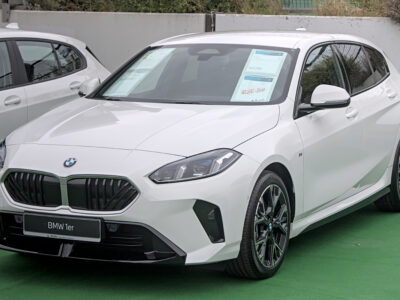
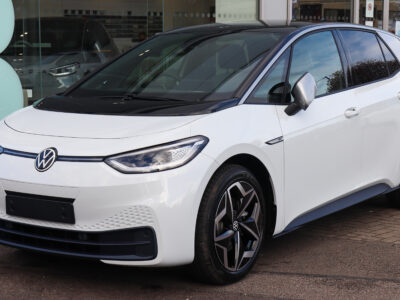
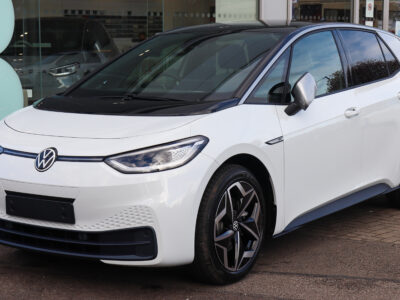
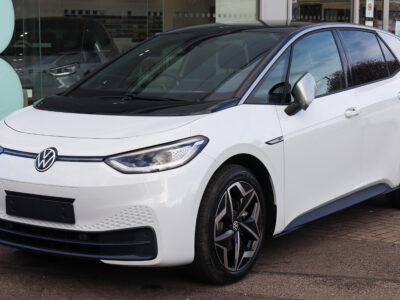
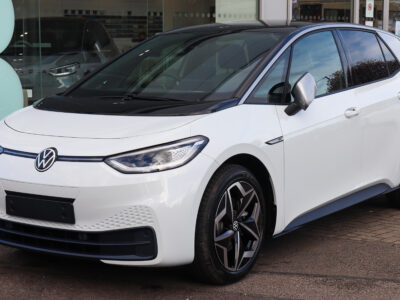
More content of your interest